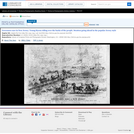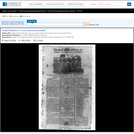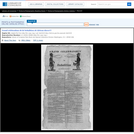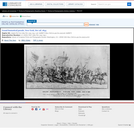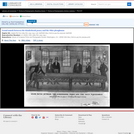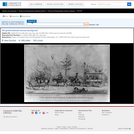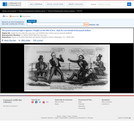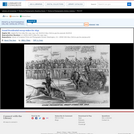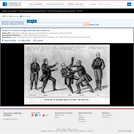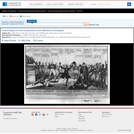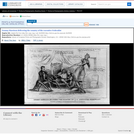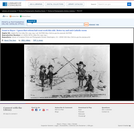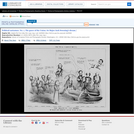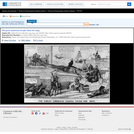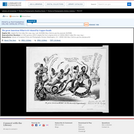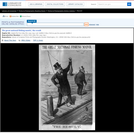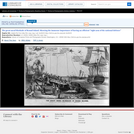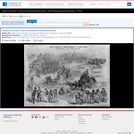!["The Government." [Eye] Take The Responsibility](https://img.oercommons.org/160x134/oercommons/media/upload/materials/screenshots/materials-course-75990.png)
A satire on Andrew Jackson's "Kitchen Cabinet," the pejorative name given his informal circle of close advisors. The print appeared during the heated controversy incited by Jackson's discontinuation of federal deposits to the Bank of the United States. In the President's September 1833 message to his formal cabinet, announcing this measure he claimed sole "responsibility" for this decision. Many regardless attributed the move to the machinations of Van Buren and other figures of the "Kitchen" group. "The Government," is shown as a cart, driven by a figure made up of kitchen implements, and drawn by an ass with Jackson's head, who is in turn led by the ear by Martin Van Buren. The cart is marked "K.C." probably standing for Kitchen Cabinet, and bears an emblem composed of a broad-brimmed hat, riding crop, sword, Jackson's eyeglasses, and a cauldron. The same cauldron, inscribed with the word "unit," appears as the mid-section of the driver. (The cryptic term "unit" figures in an earlier cartoon -- again with reference to Jackson's cabinet -- Edward W. Clay's ".00001. The Value of a Unit," no. 1831-1). Into the cart a black man pours a bucket of waste, apparently from the public privvy in the background, marked "Public Accomodation / Place of Deposit" on the right.|Entered . . . 1834 by Endicott & Swett . . . New-York.|Hassan Straightshanks (David Claypool Johnston?) Del.|The title suggests that the print was to have been the first in a series, although no further numbers have been recorded. It was by the same artist, pseudonymed "Hassan Strightshanks," as "The Grand National Caravan Moving East" (no. 1833-11) and "The Grand Fantastical Parade. . ." (no. 1833-12). The Library's impression was deposited for copyright on April 7, 1834.|Title appears as it is written on the item.|Murrell, p. 124.|Weitenkampf, p. 35.|Forms part of: American cartoon print filing series (Library of Congress)|Published in: American political prints, 1766-1876 / Bernard F. Reilly. Boston : G.K. Hall, 1991, entry 1834-12.
- Subject:
- History
- U.S. History
- Material Type:
- Diagram/Illustration
- Primary Source
- Provider:
- Library of Congress
- Provider Set:
- Library of Congress - Cartoons 1766-1876
- Date Added:
- 06/08/2013
